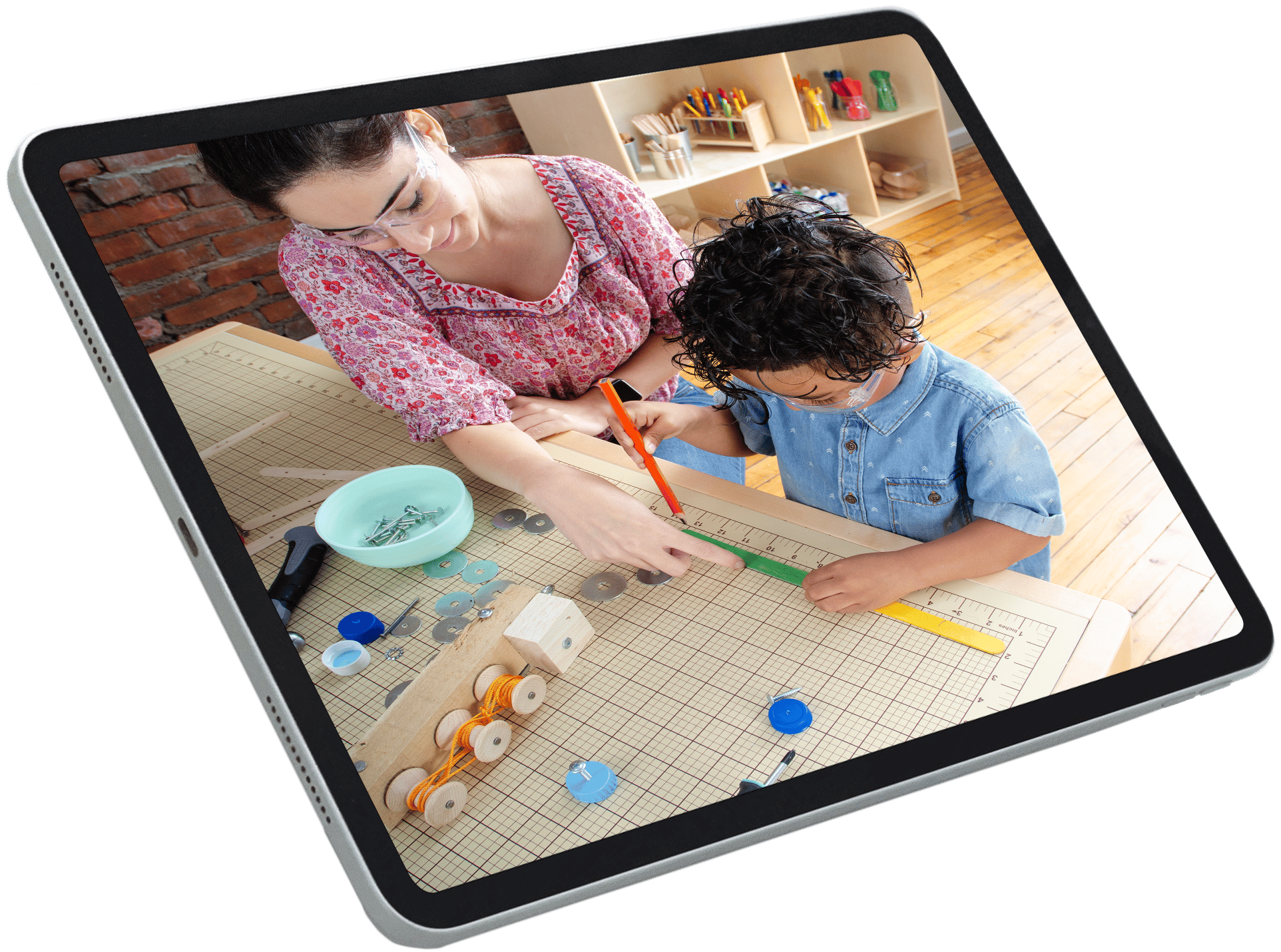
From talking and singing to playing and reading, there are a variety of ways you can nourish early language development in the infants and toddlers in your care. Helping children remember the meanings of words and discover the meaning of new words is an important component in early literacy. In Time for a Story, Amy Brooks Read and Saroj Nadkarni Ghoting provide checklists that can help you evaluate and reflect on what you do to increase the vocabulary of infants and toddlers:
In the Classroom with Infants
- I read a lot of information books (books that offer factual information about the child's world) and make them available in the classroom.
- When I talk to babies, I use parentese: a higher pitch; short, simple sentences; and long vowel sounds.
- When I use lots of different facial expressions with babies, I notice that they will listen to me longer. I know they learn more from my talking with them than from watching TV or DVDs.
- Even when I speak to a baby in parentese, I use big words.
- I narrate the day to babies, saying what I am doing as I do it or saying what they are doing.
- I say and sing nursery rhymes, such as "Hickory Dickory Dock," and do some actions as I say them, because that is one way babies learn new words.
- I share books with babies, talking about the pictures.
- When I read books with babies, I use big words, both the ones in the book and words I add.
- If I am reading materials myself, I read some of it aloud to the children.
- When I talk with babies, I notice how they react with different expressions in their eyes and faces.
- Even if I get tired of singing songs, saying nursery rhymes, and reading books over and over again, I still do it because it helps babies learn.
- I encourage parents to visit the library with their children.
In the Classroom with Toddlers
- I read a lot of information books (books that offer factual information about the child's world) and make them available in the classroom.
- I narrate the day to toddlers, saying what I am doing as I do it or saying what a child is doing.
- I try to find ways to encourage toddlers rather than just saying no, by offering choices, explaining reasons, talking about feelings, and using words for self-control such as wait or gently.
- The more I repeat a nursery rhyme and do some actions, the more the children try to say the words.
- The more I sing with toddlers, the more they remember and are able to sing the song (even if I cannot understand all of their words).
- As I talk with a toddler, I use words a toddler does not understand yet. I know they learn more from my talking with them than watching TV or DVDs.
- When a toddler talks to me, I repeat what she says and then add some more words.
- Even if a toddler does not understand, that does not stop me—I explain what words mean or talk about what is going on around us.
- When I read books with toddlers, I ask what questions and add more words.
- When I read books with toddlers, I add words that they do not know.
- Even if I get tired of singing songs, saying nursery rhymes, and reading books over and over again, I still do it because it helps toddlers learn.
- I encourage parents to visit the library with their children and check out books to share together.
Check out Time for a Story for additional information on supporting early literacy and tips on sharing books with infants and toddlers. You can also find a variety of language materials and resources in the Language Skills category of our Infant and Toddler Care section.
